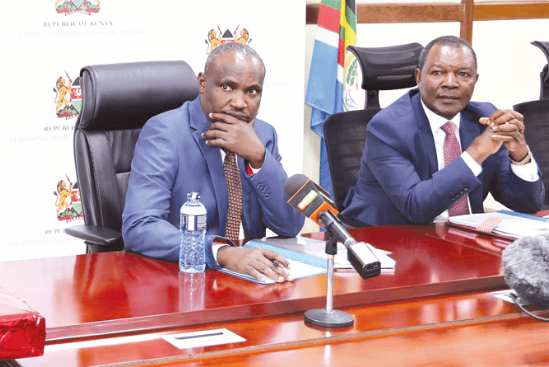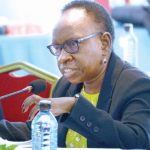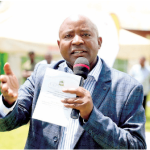Services in counties are nearing a standstill due to the national government’s failure to disburse funds for the past three months. The national government owes counties over Sh96.4 billion in equitable shares for July, August, and September, according to Anne Waiguru, Chairperson of the Council of Governors (CoG) and Kirinyaga Governor.
Waiguru warned, “Should the delays continue any further, counties are likely to grind to a halt.” She noted that most counties have not paid salaries and are accumulating pending bills, which has severely impacted service delivery and budget implementation.
“The situation has severely affected the operations of counties in terms of service delivery and implementation of their budgets,” Waiguru explained. She added that counties are struggling to pay staff salaries, with some resorting to short-term borrowing from commercial banks, a solution that is unsustainable in the long run.
Employees in counties such as Turkana, Nyandarua, Nakuru, Trans-Nzoia, Kisumu, Tana River, Marsabit, Garissa, and Isiolo have gone without salaries for the past three months. Only a few counties, including Kiambu, Kirinyaga, Murang’a, Nyamira, and Baringo, have managed to find alternative cash sources to pay their employees and maintain daily operations.
In response, Waiguru has called a crisis meeting tomorrow to address the delayed disbursements to counties. Machakos Deputy Governor Francis Mwangangi highlighted the detrimental effects of the delays, urging the national government to increase the revenue share to counties to at least 40 percent, as promised by the President during the 2022 election campaigns.
Mwangangi criticized the annual resource shortages, stating, “Starving counties of resources has become an annual ritual and discredited the objectives of devolution as envisioned in the Constitution.” He added that the Treasury often disregards the positions of both the CoG and the Commission on Revenue Allocation (CRA), leading to significant underfunding of counties.
Mwangangi also called for the fast-tracking of devolved functions in agriculture, roads, water, health, and irrigation to the counties.
He pointed to cases where MPs have been involved in constructing and desilting dams, tasks that are supposed to be handled by the devolved governments. “Apparently, the national government is operating as if counties don’t exist. Everything that the national government does is geared towards killing county governments,” he lamented.
In response to the financial shortfalls, several counties have implemented emergency measures, including tapping into their own-source revenues, securing overdrafts, and taking out loans to cover salaries and daily operations. Some administrators have issued notices requesting staff patience regarding the delayed salaries.
In Kiambu, for example, Peter Ndegwa, the head of public service, has asked workers to be patient regarding their overdue August salaries. In a September 5 memo, Ndegwa explained, “The county government has not received [money] from the National Treasury for the months of July, August, and September. [Consequently], we have not been able to pay salaries for the month of August 2024.”
Ndegwa reassured employees that the Treasury had promised to release the funds and called for patience and understanding. “We understand the implications of delayed salaries and request the staff to bear with us as we engage the National Treasury through the Council of Governors to release the funds as soon as possible,” he wrote.
Several trade unions representing health workers have warned of potential strike action this week if the devolved units do not meet their demands, which include the payment of overdue salaries.



